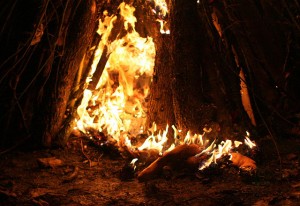Jan 3, 2011 5
Number numbness, part 2
Our story begins with a number being bandied around. 1,800,000 to be precise. That being the reported cost in pounds sterling, of London’s New Year’s Eve fireworks. [Update Jan 2012: this post was written after New Year’s Eve 2010; the cost a year later of these breathtaking fireworks was–perhaps remarkably–only £100k higher.]
It certainly is a big number.
And when I see big numbers, particularly those getting a lot of bandying, one word tends to come immediately to mind:
Meh.
I know—boring old analysis again. We’ve been here before. That fortune the BBC were spending on taxis. Well, perhaps not, set in the context of what they actually, you know, do?
Much easier to say: cor that’s a shed load of cash; shouldn’t have spent it in a time of austerity; looks terrible; could have given it all to charity, people are going to let off their own, anyway, aren’t they? (Don’t assume that I don’t agree with these sentiments, mind you. But this is a post about what might lie behind the number…)
What ran through my head were the usual dull questions: so, that £1.8m: what’s that the cost for, exactly? Just the physical fireworks themselves? Probably not. What about the labour to set them off, and the safety checks? And what about planning, permissions, policing? And clean-up and fire cover and first-aid provision?
There’s a lot involved. And crucially, were the fireworks not to have been fired, what would be the actual cash saving to be realised as a result? Probably somewhere south of £1.8m, I’d say. Costs aren’t as neatly packaged up as all that in real life—there’ll be commitments and interdependencies that will bring that number down.
So having had a bit of a think about the composition of costs, I might then think about comparison. Yes, I know it’s a lot of willy-waving between ‘global’ cities trying to look all impressive on each others’ news channels, but if Sydney, NYC, Paris etc. had spent, say, £3m each, would our reaction be any different? Maybe, maybe not. But it gives a sense of scaling. (I loved this comment in response to my request for a rational basis by which one might judge how much should have been spent.)
And in terms of other context, what about other big lumps of money associated with New Year’s Eve in London? Policing generally? Transport costs (other than Wonga’s wedge)? Stewarding? First-aid? Clean-up? If the £1.8m were considered as a proportion of the whole picture of London’s NYE activity, would that make a difference?
What of the direct beneficiaries of that £1.8m?—that’s a fair chunk of business for someone. I know it’s the last refuge of the unreconstructed Keynesian scoundrel to bleat on apologetically about trickle-down multiplier [durrr, my bad] effects, but could that make a difference to your view? We naturally assume that nearly two million has been spanked away out of the country on Chinese gunpowder and cardboard, but what if all the pyrotechnics had been hand-assembled in a big social enterprise thingy by East End orphans? Would that sway us?
Would it buggery. Because none of the above, interesting though they might be in theory, have any real connection to the popular reaction. It’s all about the symbolism. Only the sight of Boris himself standing on a barge in the middle of the Thames setting fire to a pile of fifties with a blowtorch could be stronger. It’s fun, it’s frivolous, it’s WASTE.
I suggest that trying to pare the costs down wouldn’t have been much use either. Apart from the tedious fact that full-on Big City celebratory fireworks actually do cost a ton of money, there’s a whole load of data we don’t have about which costs were fixed and which variable. “Well, open all that data up too” I hear you shout—sure, and that might help with some of the analysis, but it won’t change the public reaction.
No, only a complete absence of fireworks would serve to sway that. And then we’d have the screaming headlines “They’ve BANNED New Year’s Eve” and “London falls dark—a miserable, depressed city shuffles towards 2012 (and don’t even think about investing or doing business here—we’re shut)”. “OLYMPICS??—they can’t even organise a fireworks display!”
Not easy, really, is it? And this is what happens when you get a Big Number being bandied. As more spending data is opened up, I hope, I really do, that we develop other skills—the ability to analyse in context, to compare, to understand downstream effects and dependencies—in balance. But I worry that the temptation to focus on cheese budgets and, of course, fireworks, may grab all the attention.
And then, as I commented to Francis Maude and the Transparency Board last month, we end up aware only of costs, and not of value. And Oscar Wilde knew what that would turn us into.

